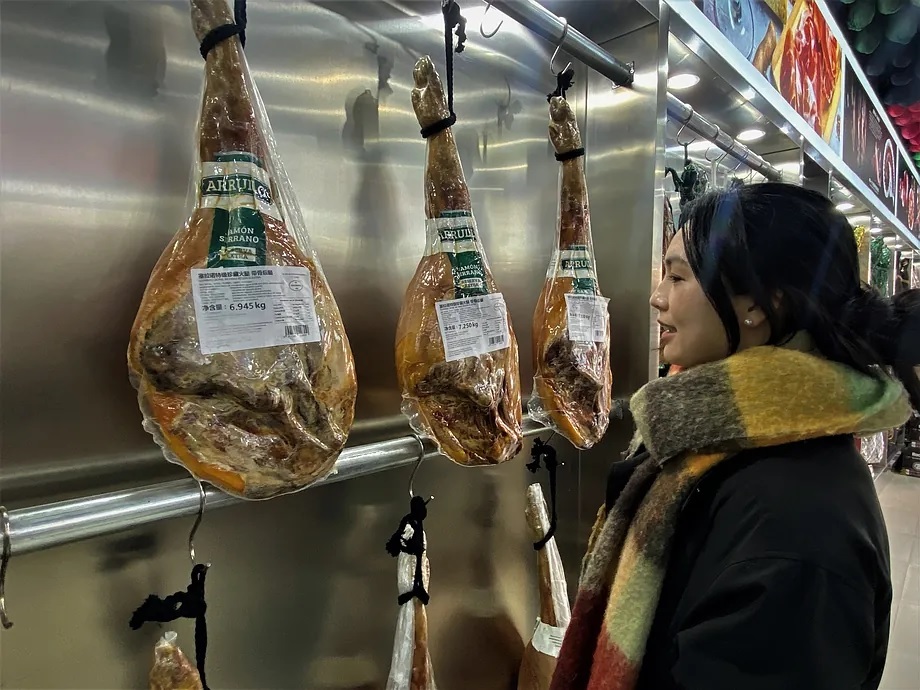While devouring a hearty bowl of spicy noodle soup seasoned with plenty of chili oil and strips of pork, Yuang, an accountant who has never traveled outside of China, looks up from his plate, gazes at the only foreigner at the table, and says that what he likes most about Spain is Messi. His niece, a twenty-something who is part of the 9% of the Chinese population that holds a passport - and has used it - quickly interrupts to point out that Messi is an Argentine footballer, not Spanish. "I have seen videos of a very famous party in Spain where many people run in front of the bulls," blurts out another diner, a salesman named Luo, who admits that although he knows Spain is in Europe, he doesn't locate it well on the map.
Out of the five Chinese individuals, two women and three men, sitting at a noodle restaurant table in Yantai, a port city on the east coast of the Asian giant, four have watched videos of the San Fermín festival because some years they have gone viral on social media. The women also know about two Spanish classics, paella and ham. The men are still processing the news that Messi is not Spanish.
During the week in which Pedro Sánchez visits China for the third time to strengthen ties with the Asian superpower, we wonder what the Chinese really know about Spain. If one visits Spanish restaurants in Shanghai, they will say that there are always customers eager to try good ham or a plate of croquettes. If one goes to liquor stores in Beijing, they will affirm that Spanish wine is highly regarded. If one stops by the Spanish embassy, they will assure that there are increasingly more Chinese tourists visiting Spain. And if one inquires at the Cervantes Institute, they will testify that the local audience is a fan of Picasso's works.
All of this is true. It is also true that these responses come from within the bubble of open cities like Shanghai or Beijing. Because if we go to Yantai, with its staggering seven million inhabitants, most people do not know who Picasso is and have never tasted ham. Not even - we tested this months ago - do they know exactly where Spain is located.
And what about Pedro Sánchez? He is also not one of the usual political figures in Chinese media, although anyone who was attentive to the news on the public CCTV station on Tuesday probably saw a spokesperson from the Ministry of Foreign Affairs praising the bilateral relations with Spain. "They are at the forefront of relations between China and Europe," he said. On Baidu, the equivalent of Google search engine, there are not many prominent news about the correspondence between Sánchez and China, unlike the various reports about the close relationship with China of another socialist, former President José Luis Rodríguez Zapatero.
Beyond the diplomatic and media circuit, the reality is that our country is very well positioned among Chinese tourists traveling abroad: in 2024, according to data from Turespaña, the number of visitors increased by 66.7% and spending by 69.3%. There are also increasingly more major investors looking towards Spain. But our focus is on an immense country with over 1.4 billion inhabitants, where the ham diplomacy, unlike that of Italian pizza or French wine, has not yet deeply penetrated once you step outside the shelter of the most well-known metropolises.
"Many Spanish exporters look at China and only see Shanghai, Beijing, Guangzhou, or Shenzhen, ultra-competitive markets where there is hardly any space left, while this country has many more regions with a massive potential customer base where the Spanish brand goes unnoticed," states José Iñiguez, general manager of the Osborne group in Asia, who knows the local market like few others after living in China for over 22 years.
The flagship product they sell, Cinco Jotas ham, one of the best in the world, is highly sought after in many corners of the Asian country despite the current decline in imports. "They increased significantly when bone-in ham was approved at the end of 2019. But China is experiencing a major consumption crisis that has been ongoing since the pandemic, affecting all products, from ham to wine," explains Iñiguez, who is somewhat relieved because Spanish Iberian ham is excluded from the anti-dumping investigation announced last year by Beijing against certain imports of pork and derivatives from the European Union.
A large portion of imported ham, like many other Spanish products, comes from Qingtian, a county in inland China that is the birthplace of over 80% of Spanish migrants in China. In this place, where the first ham cutting factory in the country is being built, there are statues of bullfighters and bars serving decent cortado coffee. Here, where ham diplomacy has indeed been successful, all the locals know that Messi is not Spanish.
